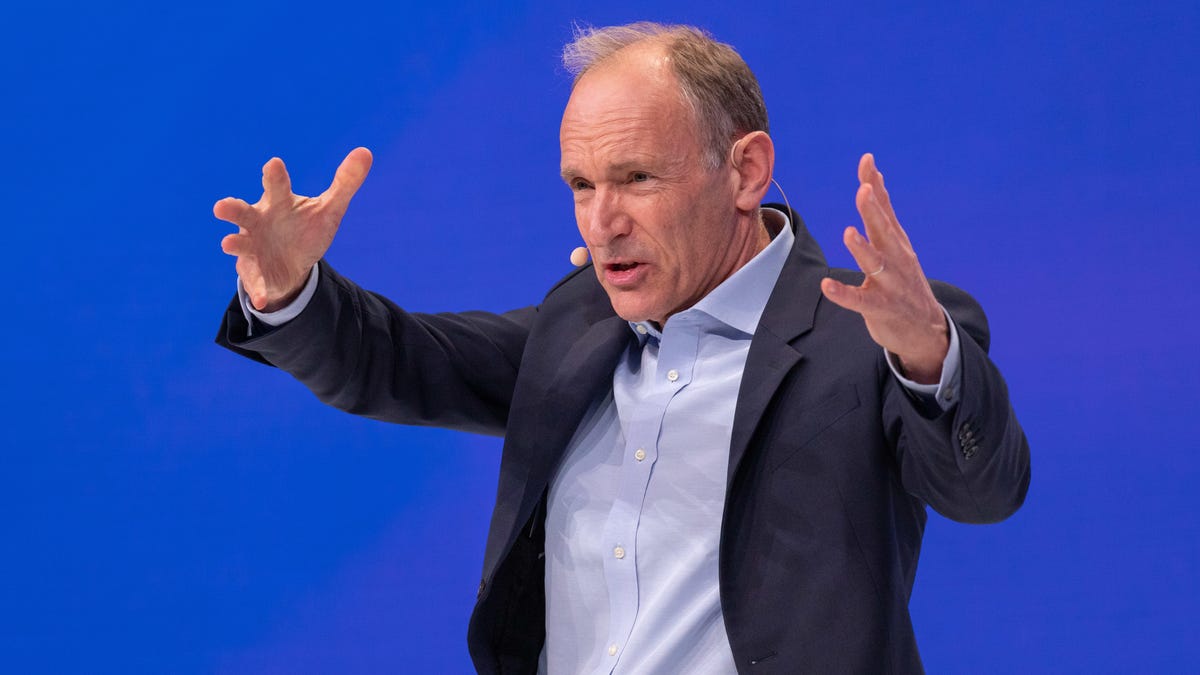How much is .org domain business worth? $1.13 billion
The Internet Society wants to fund an endowment with the money, and Ethos Capital promises not to jack up .org prices.

World Wide Web inventor Tim Berners-Lee speaks at the Oktane 2019 conference.
Now we know how much Ethos Capital is willing to pay for the business of selling nonprofits the right to use the .org internet domain: $1.13 billion. That's the sale price the Internet Society said it agreed on in a transaction that's drawn concern from World Wide Web inventor Tim Berners-Lee and others.
The Internet Society, a 27-year-old nonprofit that pushes for online improvements like better privacy and security, has for years operated, and been funded by, a division called the Public Interest Registry. PIR sells the right to use .org domain names, and Ethos Capital agreed in November to buy PIR.
The sale, set to close by the first quarter of 2020, triggered concerns that a private equity firm might not have the same public-interest motives as the Internet Society. Berners-Lee worried the sale could be a "travesty," and 12,516 people have signed a petition organized by the Electronic Frontier Foundation to stop the sale.
That sort of skepticism about tech companies' business motives is growing more common as firms like Google, Microsoft and Facebook come in for criticism about issues like privacy protection, working conditions, political manipulation and projects for the military. Protecting shareholder value and the bottom line isn't as convincing a justification nowadays.
The Internet Society disclosed the sale price in a statement that acknowledged people's concerns about the PIR sale to Ethos.
"We were not as clear and communicative as we should have been about what this sale means to the .org community," spokesman James Wood said in a Tuesday statement. But .org will be just fine, Wood argued.
"There will be no change to the way .org is run as a result of this deal," Wood said. Ethos Capital will make .org a "more reliable and useful home" online and will invest in ways the Internet Society couldn't, he added. At the same time, the $1.13 billion will give the Internet Society an endowment offering a stable, long-term source of funds to pursue its mission.
Ethos said in November that it's "enthusiastic about developing new services and support to serve the .org community." It sought to allay concerns that it would jack up prices for .org domains, and Nora Abusitta-Ouri, Ethos' chief purpose officer, argued in a blog post that "doing 'well' and doing 'good' are not mutually exclusive."

